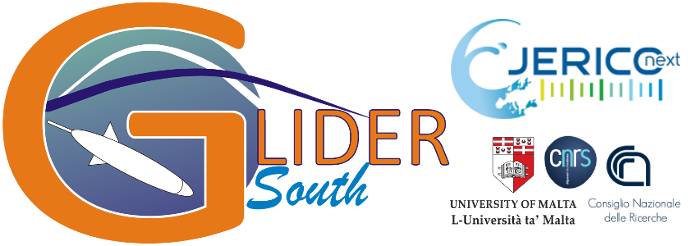GLIDER SOUTH is another major physical oceanography
research initiative, in which the Physical Oceanography
Research Group (PO-Res. Grp) will be collaborating
with
CNRS-INSU
(Centre National de la Recherche Scientifique
– Institut National des Sciences de l’Univers). This
project was proposed, and will be coordinated, by Prof.
Aldo Drago (
aldo.drago@um.edu.mt),
within the JERICO NEXT
Trans National Access activities.
Underwater gliders are autonomous robots, which have
the ability to move around the water up to a depth of
1000m. They can be used to collect CTD (conductivity,
temperature and depth) data, as well as biogeochemical
measurements, at high spatial resolution, for long
periods of time, even under adverse meteorological
conditions. A satellite link is used to control the
gliders remotely, and to transfer the data collected
to the data repository. More information about gliders
is available
here.
The PO-Res. Grp will have an opportunity to use underwater
gliders provided by CNRS, which will be deployed close
to Malta and along transects between Malta and southern
Mediterranean shelf. This area of the Mediterranean Sea
is comparatively unexplored. Hence, hydrographic data in
this region is very scarce and provides only a coarse
description of the hydrographic conditions prevalent
there. This project will provide pristine data, which
will help to understand the dynamic phenomena observed
in the southern Sicilian Channel. Furthermore, data
collected will be used to validate oceanographic
models of the area. The PO-Res. Grp is the lead partner
in this project, which will put it on the map as a key
contributor in operational oceanography and physical
oceanographic research in the Central Mediterranean area.
This project is supported by the European Commission –
H2020 Framework Programme,
JERICO NEXT
under grant agreement No. 654410.
